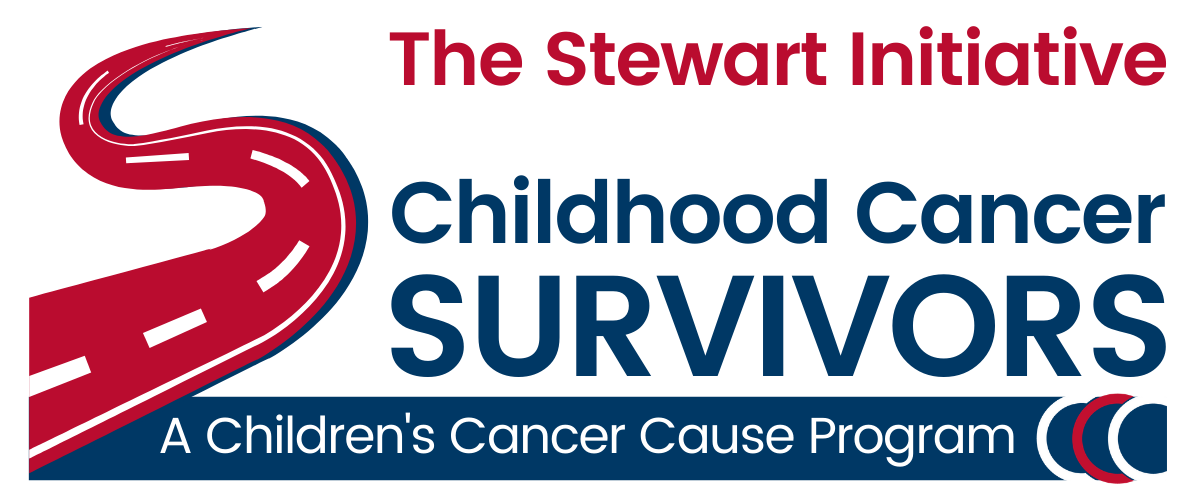Basics of Prevention & Healthy Living
Wear sunscreen and limit sun exposure.
A 2025 study found that childhood cancer survivors had a greater than two-fold increased risk of invasive skin and ocular melanoma versus the general population, and those with an invasive melanoma have more than a two-fold risk of death. In fact, skin cancer is the most common secondary cancer for childhood cancer survivors.
The best line of defense is to always wear sunscreen of at least SPF 30 and limit sun exposure during the hottest part of the day.
Another great way to protect your skin is with sun-protective clothing. The Skin Cancer Foundation offers resources to help you understand the UV protective level of different types of fabrics, colors, and fits. Some clothes even come with a Skin Cancer Foundation Seal of Recommendation, indicating they have an Ultraviolet Protection Factor of at least 30.
Examine carefully any moles or other spots. Pay particular attention to the area that received radiation. Be sure to tell your doctor if you find any abnormal bump, mole or spot.
Learn more: Skin Cancer Foundation
or St. Jude Together
Practice safe sex. Always.
Childhood cancer survivors are a increased risk of developing HPV-associated malignancies in adulthood, compared to their peers.
Given this elevated risk, it is highly recommended that childhood cancer survivors receive the HPV vaccine — in addition to always practicing safe sex. In fact, survivors should receive a three-dose series of the vaccination, regardless of the age at which the first vaccine was given, according to the Children’s Oncology Group (COG) guidelines.
Brush and floss.
Cancer survivors need to be especially diligent with their oral hygiene. Radiation and chemotherapy may have had a serious impact on your dental health, from cavities and sensitivity to weakened teeth roots and enamel.
Make dental visits a priority fixture in your calendar: try to set up a visit every six months. Your dentist should have a record of your complete health history.
Learn More: Dental Health (Children’s Oncology Group)
Exercise.
A large body of research tells us that regular, moderate exercise provides many health benefits, including improving heart health, reducing fatigue, and controlling weight. Childhood cancer survivors are at an increased risk of obesity and metabolic syndrome, so exercise is especially important for this population.
The COG advises survivors treated with anthracyclines or chest radiation to clear strenuous exercise or varsity team sports with their doctor, as some types of strenuous exercise are stressful on the heart.
Avoid Tobacco.
The top item on every cancer prevention list is likely to be the same: NO SMOKING! You probably already know that smoking puts people at risk of lung cancer, which kills more Americans every year than car accidents, fires, murders, suicides, alcohol and drugs combined.
But as a cancer survivor, your body may be even more susceptible to the harmful effects of smoking, especially if you were exposed to chemo or radiation that weakened your lungs. Even being around secondhand smoke from family members or friends can put your health at significant risk.
E-cigarettes and smokeless tobacco also carry significant risks, especially for cancer survivors. Smokeless tobacco can cause cancers of the mouth, esophagus, and pancreas. In addition to the extremely addictive nature of nicotine, many of the flavorings used in e-cigarettes are linked to serious lung disease.
There are many available resources and apps to help you quit tobacco. You can call a quit line, such as: Call 1-800-QUIT-NOW, or for the National Cancer Institute’s line, call 1-877-44U-QUIT.
Eat healthy.
Eat more fruits, vegetables, whole grains, and beans. Certain naturally-occurring chemicals are known to help protect against cancer, including: phytochemicals found in brightly-colored vegetables; polyphenols, as found in certain herbs, berries, and teas; allium compounds like those in garlic and onions; and glucosinolates, as found in cruciferous vegetables.
Limit your consumption of processed meats like hot dogs, preservatives, sugary drinks, refined carbs, and red meat. Learn more: choosemyplate.gov
Featured Resource: The Cancer Support Community provides much more information on diet and nutrition, including a goals chart to help you get started on your path to healthier eating.
Limit alcohol.
Alcohol consumption raises the risk of cancers of the liver, head and neck, breast, and colon and rectum.
Cancer survivors who may already have damaged or weakened organs from their treatment are at even higher risk of suffering the harmful effects of alcohol.
Follow vaccination recommendations.
In addition to the HPV vaccine, it’s recommended that childhood cancer survivors generally should receive annual COVID boosters and flu shots. If you are still receiving cancer therapy or just recently completed therapy, talk with your cancer care team about your vaccine schedule.
